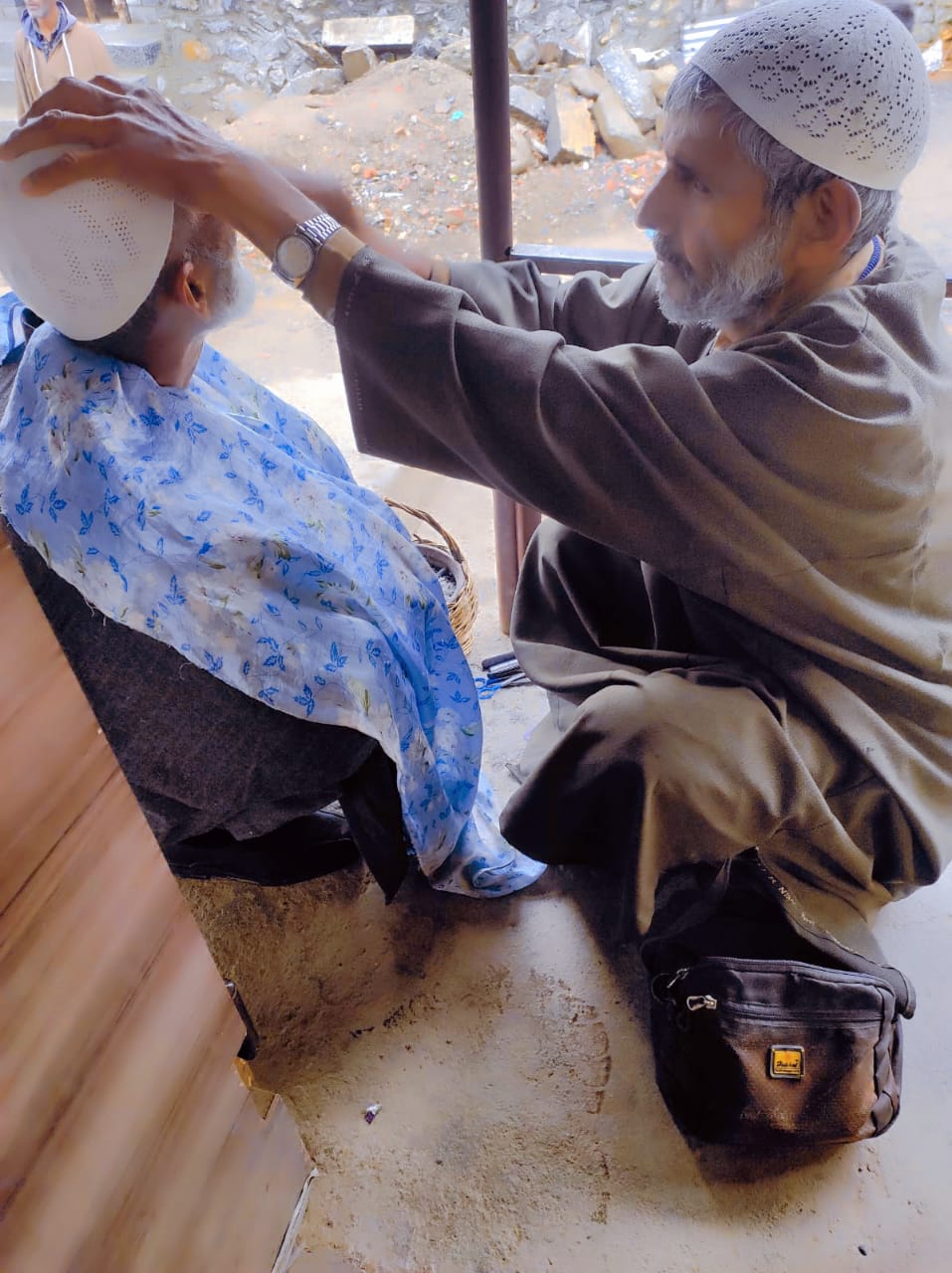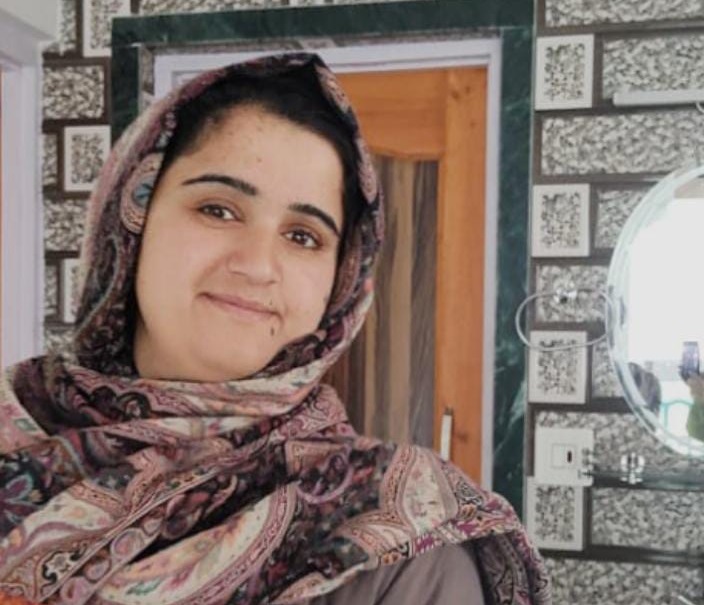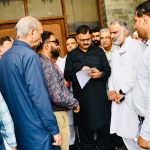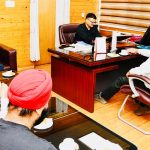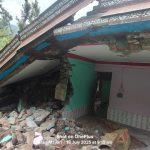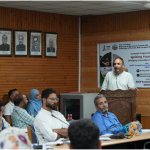Bandipora, Nov 13: At a time when mushroom growth of modern salons has swayed over the traditional barber shops in Kashmir, there is an eighty-year-old street barber from north Kashmir’s Bandipora district who is striving to “preserve the old style of haircutting and shaving”.
Ali Mohammad, from Aragam village of Bandipora, pursues this family profession for the last many decades. With a bag packed with barbering essentials slung over his shoulder, he visits the homes of his longtime customers. However, his dedication and passion to preserve his ancestral profession are not fetching him enough money to run his household expenses.
Talking to Rising Kashmir, Ali said that waking up early to go to work is not as exciting as it sounds as “many people avoid using our services because they worry about how people will look at them while shaving or cutting hair in the middle of the road”.
“Every street barber is a victim of great infamy and ridicule in the eyes of society and the biggest challenge in front of him is that people look down on him because of his work,” he said.
“Only our decades-old customers and the lower-class people prefer us because of affordable prices.” “Whenever we offer people a haircut or a shave, they hesitate because they believe that street barbers don’t use tools that are as clean and tidy as the local barbershops,” he added.
Talking about the early days when the business of street barbers was booming, Ali said they were the only source of hairdressing until being replaced by local barbershops in the late eighties.
He said that customers of every economic class would use their services and were highly satisfied; however, over time several factors led to their decline. He said street barbers have never been able to evolve with the times as they did not earn enough to afford the modern tools and techniques of hair styling. “Barbershops used modern tools and followed all the latest trends in cutting and styling hair which eventually further eroded our customer base and made us to serve a lower segment of society,” he said.


